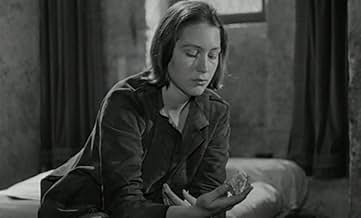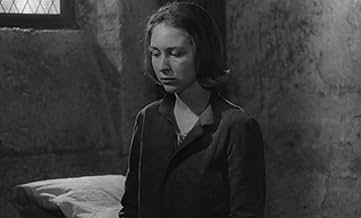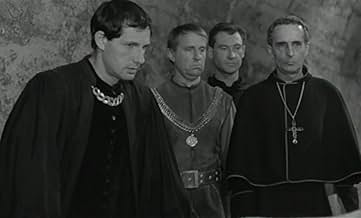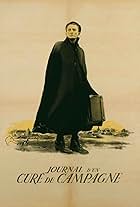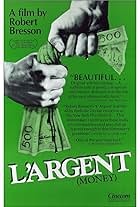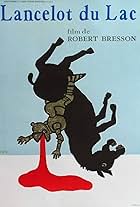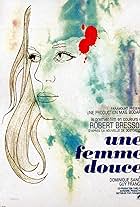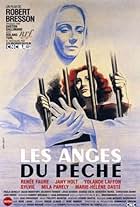IMDb RATING
7.4/10
6.1K
YOUR RATING
A Joan of Arc's trial reconstruction concerning her imprisonment, interrogation and final execution at the hands of the English. Filmed in a spare, low-key fashion.A Joan of Arc's trial reconstruction concerning her imprisonment, interrogation and final execution at the hands of the English. Filmed in a spare, low-key fashion.A Joan of Arc's trial reconstruction concerning her imprisonment, interrogation and final execution at the hands of the English. Filmed in a spare, low-key fashion.
- Awards
- 3 wins & 2 nominations
Florence Delay
- Jeanne d'Arc
- (as Florence Carrez)
Yves Le Prince
- Pierre Morice
- (uncredited)
André Maurice
- Tiphaine
- (uncredited)
Donald O'Brien
- English Priest
- (uncredited)
E.R. Pratt
- Warwick
- (uncredited)
Harry Sommers
- Bishop of Winchester
- (uncredited)
Michael Williams
- Englishman
- (uncredited)
- Director
- Writers
- All cast & crew
- Production, box office & more at IMDbPro
Storyline
Did you know
- TriviaPrologue: "Joan of Arc died on May 30, 1431. She has no tomb and we have no portrait of her. But we have something better than a portrait: Her words to her judges at Rouen. I used the authentic texts of her condemnation. At the end, I used statements from her rehabilitation trial 25 years later. When the film begins, Joan has been in prison for several months at a castle in Rouen. Captured at Compiègne by traitorous French soldiers, she was sold to the English for a very high price. Her tribunal was composed exclusively of anglophiles from the University of Paris, led by Bishop Cauchon."
- GoofsAlthough the story takes place in 1431, Jeanne's hairstyle is strictly a popular mode of the early 1960s. This is not a "goof" but an intention on the director's part to help young people identify with the character.
- Quotes
Bishop Cauchon: You must tell your judge the truth.
Jeanne d'Arc: Beware of calling yourself my judge.
- ConnectionsEdited into Histoire(s) du cinéma: Une histoire seule (1989)
Featured review
The Trial of Joan of Arc (1962) chronicles the last days of the fifteenth-century French patriot, from her interrogation by members of the Parisian clergy to her execution by burning at the stake. In the entire film there are only three locations: the courthouse, the jail and the place of Joan's execution. The words of Joan and her prosecutors, lifted almost exclusively from transcripts of the trial, take centre stage.
The clergymen probe relentlessly into Joan's religious beliefs. Twisting her words at every turn, they insinuate that she is a pagan and a heretic. Joan, parrying each thrust of their argument, appeals to a higher religious authority to prove her innocence. The clergymen, however, are mere stooges of the British, and resolve to brand her a heretic. Facing death, Joan initially recants her heresy, but then reaffirms it, thus sealing her fate. Her meagre possessions are placed at the foot of the stake, echoing the way in which her testimonies have been used against her. A clergyman holds aloft a crucifix for her but this image of Christianity is lost in the smoke from her burning pyre.
The Trial of Joan of Arc features an impressive cast of non-professional actors. Florence Delay is superb in the role of Joan, radiating defiance behind her impassive countenance. A few of the performances elsewhere are a bit wooden, but the grave manner of Bishop Cauchon and the benign gaze of the sole sympathetic priest testify to the overall strength of the casting.
Running to little more than an hour in length, The Trial of Joan of Arc might seem on paper to be an insubstantial work. Yet this is an extraordinarily intense film, thick with powerful dialogue and requiring the full concentration of the viewer. For someone not fluent in French, it is a challenge to read the subtitles and follow the images on screen, but, whether you are French-speaking or not, I highly recommend this powerful piece of cinema.
The clergymen probe relentlessly into Joan's religious beliefs. Twisting her words at every turn, they insinuate that she is a pagan and a heretic. Joan, parrying each thrust of their argument, appeals to a higher religious authority to prove her innocence. The clergymen, however, are mere stooges of the British, and resolve to brand her a heretic. Facing death, Joan initially recants her heresy, but then reaffirms it, thus sealing her fate. Her meagre possessions are placed at the foot of the stake, echoing the way in which her testimonies have been used against her. A clergyman holds aloft a crucifix for her but this image of Christianity is lost in the smoke from her burning pyre.
The Trial of Joan of Arc features an impressive cast of non-professional actors. Florence Delay is superb in the role of Joan, radiating defiance behind her impassive countenance. A few of the performances elsewhere are a bit wooden, but the grave manner of Bishop Cauchon and the benign gaze of the sole sympathetic priest testify to the overall strength of the casting.
Running to little more than an hour in length, The Trial of Joan of Arc might seem on paper to be an insubstantial work. Yet this is an extraordinarily intense film, thick with powerful dialogue and requiring the full concentration of the viewer. For someone not fluent in French, it is a challenge to read the subtitles and follow the images on screen, but, whether you are French-speaking or not, I highly recommend this powerful piece of cinema.
- Robert_Woodward
- May 9, 2008
- Permalink
- How long is The Trial of Joan of Arc?Powered by Alexa
Details
- Release date
- Country of origin
- Languages
- Also known as
- Der Prozeß der Jeanne d'Arc
- Production company
- See more company credits at IMDbPro
- Runtime1 hour 4 minutes
- Color
- Aspect ratio
- 1.66 : 1
Contribute to this page
Suggest an edit or add missing content





